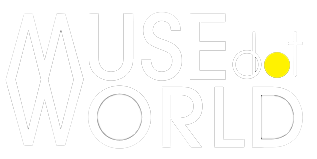How Tianyang Chen is Using AI to Democratize Innovation with Pixel Pack

History, Science, Culture: All in Minutes by Jim Connors
May 12, 2025Tianyang Chen
Tianyang Chen is the co-founder and strategic tech lead at Pixel Pack Inc., where he drives the development of AI-powered tools that help individuals turn creative ideas into production-ready products. His work focuses on making advanced design and manufacturing capabilities accessible to everyone, bridging the gap between imagination and execution through intuitive, end-to-end technology.
My name is Tianyang Chen. I’m the co-founder and strategic tech lead consultant at Pixel Pack Inc., an AI-driven startup that bridges the gap between imagination and reality. At Pixel Pack, our goal is simple yet powerful: we empower anyone to transform their creative ideas into tangible, market-ready products using artificial intelligence.
Our platform allows users—from artists to entrepreneurs—to describe their visions in natural language, such as “a minimalist mug with a floral line drawing,” and instantly generates AI-powered design options. But we don’t stop there. Pixel Pack integrates the entire production pipeline—from design to manufacturing to delivery—seamlessly connecting creativity with execution.
My role is focused on the strategic direction of our core technology. I lead the development and integration of AI systems, ensuring our platform remains intuitive, powerful, and accessible. I believe AI is the great equalizer, giving everyday people capabilities once reserved only for specialists and corporations. At Pixel Pack, we’re not just building technology—we’re building a movement where creativity and innovation become truly accessible to everyone.
When I first learned about winning the Noble Business Awards, I felt both honored and deeply inspired. It was one of those moments where you pause and reflect on the journey—recognizing the countless hours, the challenges overcome, and the incredible team effort that made this possible.
Personally, this recognition reinforces my belief that technology—especially AI—can truly empower and democratize creativity for everyone. Professionally, it validates our vision at Pixel Pack Inc. and encourages us to continue innovating. It’s a powerful reminder that what we’re building isn’t just a product or a company; it’s a meaningful movement toward a more inclusive and creative future.
We were inspired to submit our entry to the Noble Business Awards because we felt deeply aligned with the competition’s values—particularly its emphasis on innovation, positive social impact, and transformative potential. At Pixel Pack Inc., we're driven by a mission to democratize creativity through AI, enabling anyone to turn their ideas into real products, regardless of their technical expertise. We believed this powerful vision would resonate strongly with the judges.
What gave us confidence in our submission was the unique way we combined cutting-edge technology with real-world impact. Our platform doesn't just generate designs; it integrates an entire process—from creative inspiration through manufacturing and delivery. We knew this holistic, practical application of AI set us apart.
Ultimately, we felt our submission would stand out because it represented a tangible, transformative innovation—a clear step toward empowering everyday people to become creators and entrepreneurs in their own right.
The turning point for me was starting Pixel Pack.
I had worked in both startups and big tech before, but I always felt AI had more potential to empower everyday people. With Pixel Pack, the goal was to build a platform where anyone could turn a creative idea—just by describing it in words—into a real product.
That shift from working on AI in theory to building something people can use to bring their ideas to life really changed my path. It made everything I do feel more meaningful and grounded.
One of the major challenges we faced was bridging the gap between AI-generated designs and real-world manufacturing.
While generating product concepts from natural language was technically exciting, ensuring that those designs could be efficiently produced and delivered at scale presented a complex set of operational and engineering hurdles.
To address this, we focused not only on developing robust AI models but also on building a tightly integrated production pipeline — from design validation to supplier coordination and logistics. This end-to-end approach was key to transforming Pixel Pack from a creative concept into a functional platform that delivers real products to real users.
Winning this recognition would not be the end goal but rather a meaningful milestone. It would help bring greater visibility to Pixel Pack’s mission — making creativity and entrepreneurship more accessible through AI.
We plan to leverage the recognition to build new partnerships, attract talent who share our vision, and expand the platform’s reach to more creators around the world.
More broadly, I hope it inspires others in the industry to think about how AI can be used not just to automate but to empower — to lower barriers, unlock ideas, and make innovation more inclusive.
Beyond recognition, the greatest benefit of participating in awards like this is the chance to reflect on our purpose, refine our message, and connect with others who are also using technology to drive meaningful change.
It’s also a powerful learning experience — pushing us to think more deeply about impact, sustainability, and long-term value. For our team at Pixel Pack, it reinforces that we’re on the right path and motivates us to keep pushing the boundaries of what's possible with AI.
This achievement wouldn’t have been possible without the vision and dedication of my co-founder, Fang Nan, who also leads UX/UI design at Pixel Pack.
Her ability to translate abstract ideas into intuitive, user-centered experiences has been critical to making our AI platform not only functional but also truly accessible. From shaping the overall product experience to guiding the visual identity of the platform, her work has been at the heart of what makes Pixel Pack stand out.
I’m incredibly grateful to have her as a partner on this journey.
One of the most significant trends shaping our industry is the shift from AI as a backend tool to AI as a user-facing co-creator.
We're seeing a move toward systems that don't just automate tasks but actively collaborate with users — helping them generate ideas, make decisions, and bring creative visions to life. This aligns closely with what we’re building at Pixel Pack: an AI-driven platform that empowers people to go from concept to product through natural language.
To stay ahead, we’re continuously investing in multimodal models, more personalized user experiences, and deeper integration with production workflows. Our goal is to ensure that as the technology evolves, so does the accessibility — making creation even more intuitive and inclusive.
If I could offer one piece of advice to my younger self — or to someone just starting out in this field — it would be: don’t wait for permission to build something meaningful.
Early in my career, I often felt that I needed more experience, more credentials, or the “right” opportunity before starting something ambitious. But some of the most valuable growth came from simply taking initiative — joining mission-driven teams, pursuing ideas that felt important, and learning by doing.
In a fast-moving field like AI, curiosity and adaptability matter just as much as formal expertise. Stay open, stay curious, and don’t be afraid to build before everything feels perfect — that’s often where the most exciting breakthroughs begin.
For anyone considering entering, my advice is to focus on purpose, clarity, and real-world impact.
Don’t just describe what your product or technology does — explain why it matters. Highlight the problem you’re solving, who it helps, and how it makes a difference. Back it up with outcomes, even if they’re early-stage — traction, user feedback, or measurable results all help tell a stronger story.
And keep it human. Make sure someone unfamiliar with your field can still understand your vision and feel its relevance. At the end of the day, it’s not just about innovation — it’s about impact and intention.
What I’d like to share with the business community is this: innovation doesn’t always start with scale — it often starts with purpose.
In a time when AI is advancing rapidly, we have a responsibility to ensure that technology serves people — not the other way around. At Pixel Pack, our belief is simple: if we can lower the barrier to creation, we can unlock a wave of untapped potential across communities, industries, and individuals.
I hope more builders, founders, and leaders will continue to focus not just on what’s possible but on what’s meaningful.
Tianyang Chen
Tianyang Chen is the co-founder and strategic tech lead at Pixel Pack Inc., where he drives the development of AI-powered tools that help individuals turn creative ideas into production-ready products. His work focuses on making advanced design and manufacturing capabilities accessible to everyone, bridging the gap between imagination and execution through intuitive, end-to-end technology.
Explore more on how Narendra Maddukuri Modernizes Public Services Through Low-Code Innovation here.





